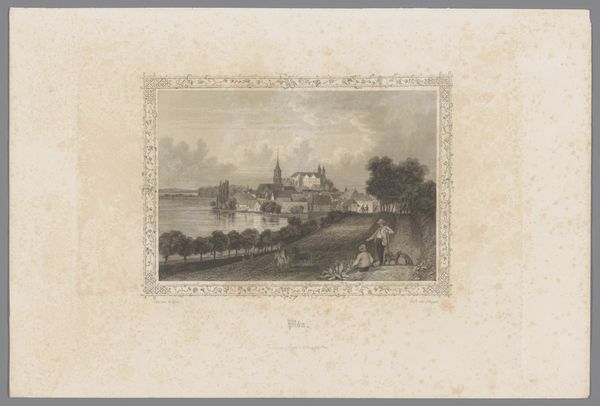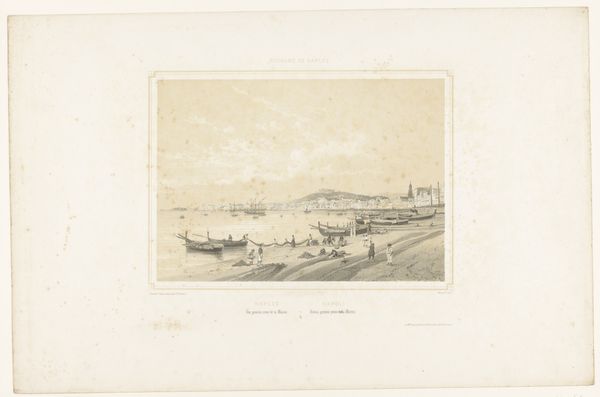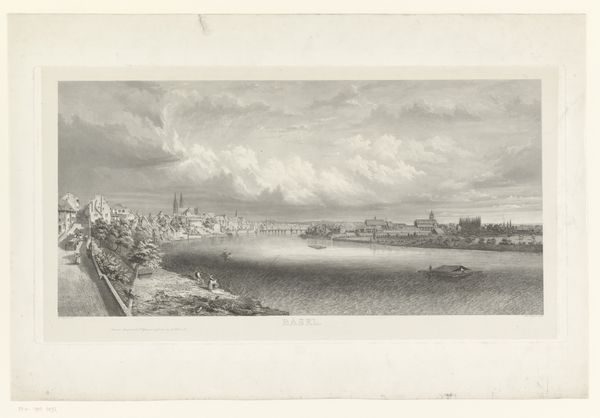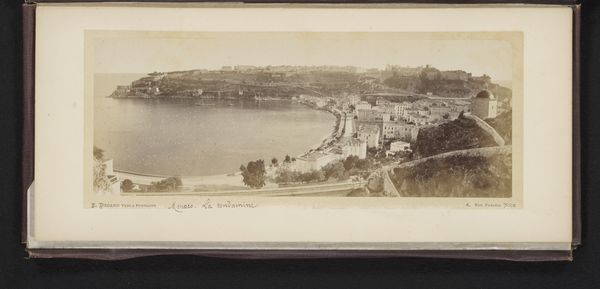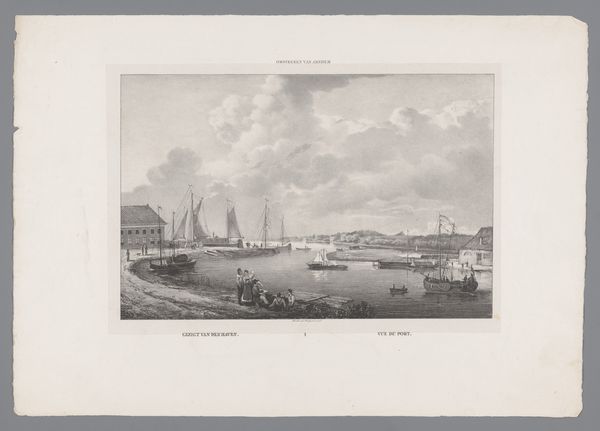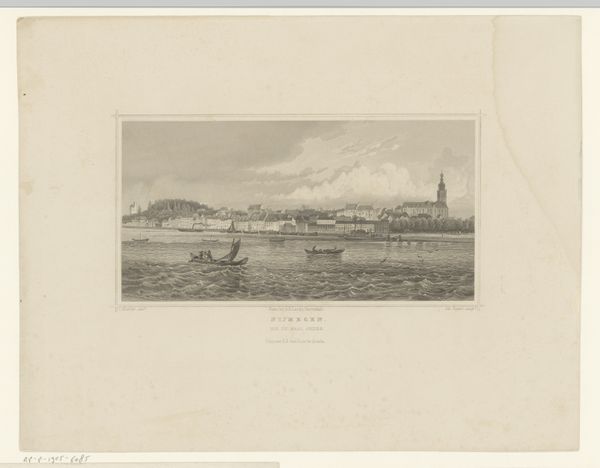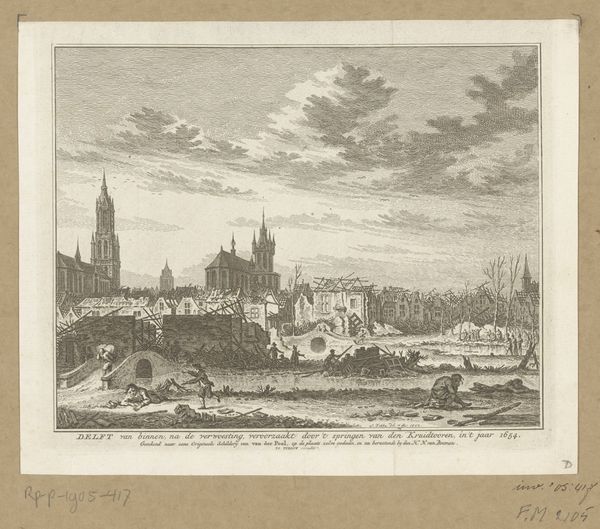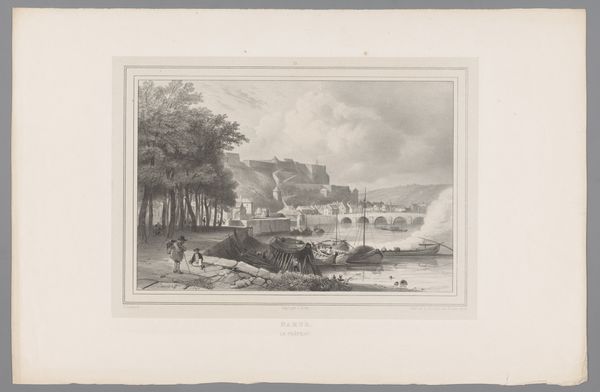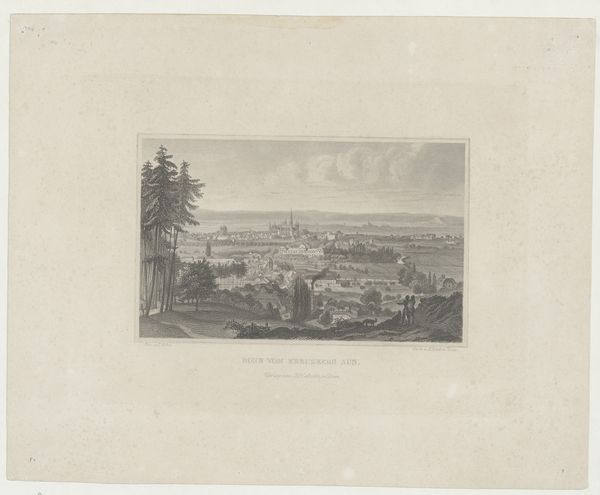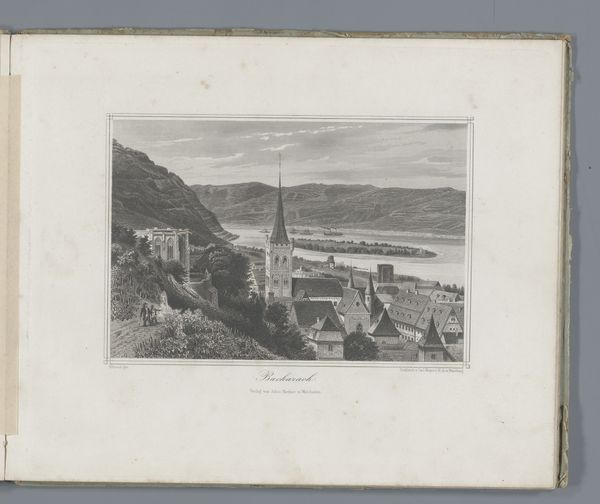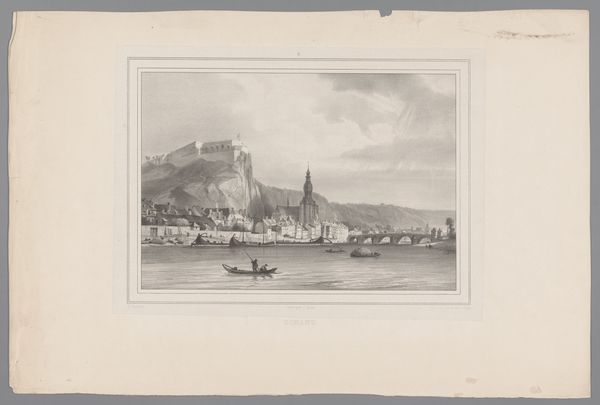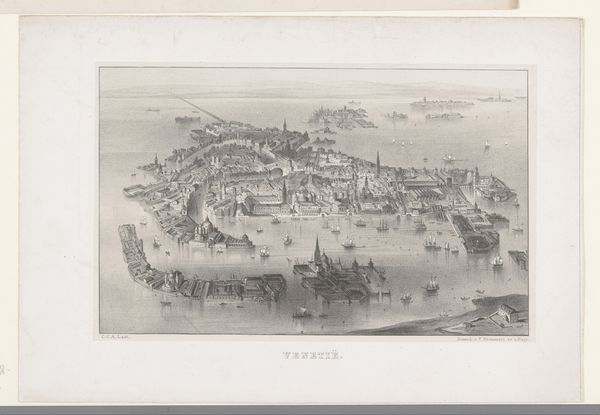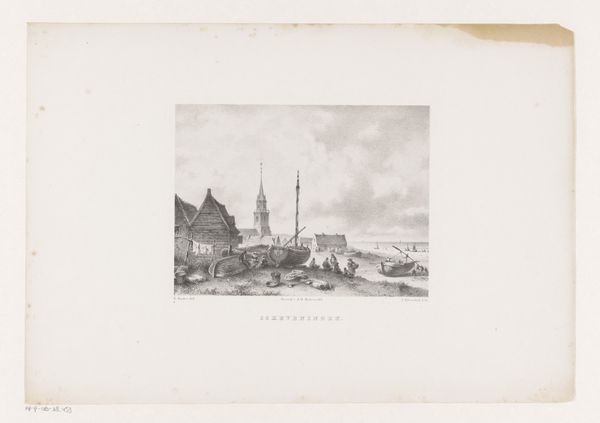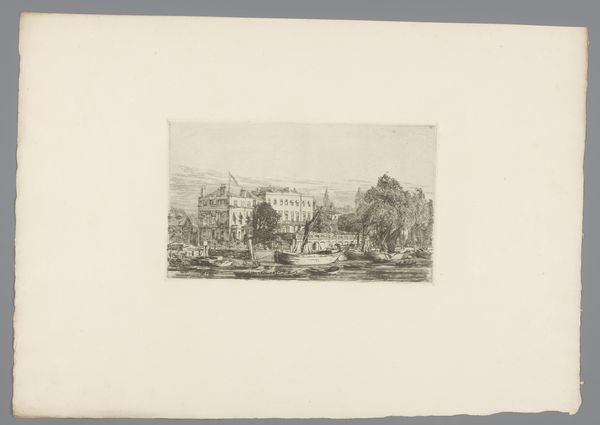
print, paper, engraving
aged paper
homemade paper
paper non-digital material
pale palette
sketch book
landscape
river
paper texture
paper
personal sketchbook
romanticism
folded paper
cityscape
paper medium
engraving
watercolor
Dimensions: height 205 mm, width 238 mm
Copyright: Rijks Museum: Open Domain
Editor: So, this is "Gezicht op Mainz," a print made by Carl Mayer sometime between 1822 and 1868. It's a cityscape rendered with what looks like engraving and watercolor on paper. It's… quite peaceful. But also maybe a little melancholic, in its grayness. What strikes you about this piece? Curator: The scene teems with symbols of transition and endurance. The river itself, often seen as a metaphor for the passage of time, flows toward an unseen future, yet it’s bounded by the permanence of the cityscape. Note how the architecture is rendered – emphasizing the solid forms of cathedrals and city structures against the fluidity of the river. How do you think Mayer is using these symbols to frame our understanding of Mainz? Editor: That contrast hadn’t occurred to me. The city feels rooted, for sure, especially with those solid architectural shapes you mentioned, but then there's so much activity – people walking, boats on the river… A constant state of flux contained by stone, perhaps? Curator: Precisely. And what about the figures in the foreground, almost pastoral? Consider the dog walkers and horseback riders, enjoying a leisurely pace that is a counterpoint to the business of river commerce, with a distinct class contrast made explicit. Editor: Ah, I see. There’s a curated leisure juxtaposed with the working river. So, the visual symbols invite us to meditate on both the continuity of the city, and maybe anxieties about changing social mores and class boundaries. It is melancholic! Curator: Indeed. It captures a particular moment in Mainz’s history. A moment caught between tradition and transformation. Editor: I hadn’t considered the symbolism so explicitly. Now I’m seeing layers I missed before. Thanks!
Comments
No comments
Be the first to comment and join the conversation on the ultimate creative platform.
